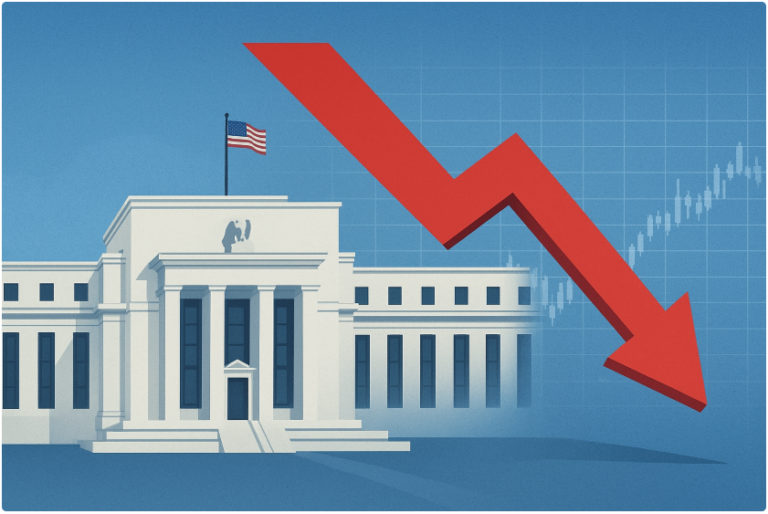The Future of Cryptocurrencies and Their Impact on the Stock Market
Introduction
Cryptocurrencies have revolutionized the financial world since the advent of Bitcoin in 2009. Over the past decade, these digital assets have evolved from a niche interest to a significant financial phenomenon, impacting various aspects of the global economy. As we look to the future, the influence of cryptocurrencies on the stock market continues to grow. Understanding this relationship is crucial for investors aiming to navigate the complexities of modern financial markets.
The Rise of Cryptocurrencies
Historical Context
The concept of cryptocurrencies was introduced with Bitcoin, created by an anonymous entity known as Satoshi Nakamoto. Bitcoin aimed to offer a decentralized alternative to traditional currencies, free from government control. Its success paved the way for thousands of other cryptocurrencies, each with unique features and use cases.
Mainstream Adoption
In recent years, cryptocurrencies have gained mainstream acceptance. Companies like Tesla, Square, and PayPal have incorporated cryptocurrencies into their operations, further legitimizing their use. Institutional investors, including hedge funds and mutual funds, are now actively investing in digital assets, viewing them as a hedge against inflation and a diversification tool.
Cryptocurrencies and the Stock Market
Market Sentiment and Volatility
Cryptocurrencies are known for their volatility. Sudden price swings can result from regulatory news, technological advancements, or macroeconomic factors. This volatility often spills over into the stock market, influencing investor sentiment. For instance, a significant drop in Bitcoin prices can lead to a broader market sell-off as investors seek to mitigate risk.
Tech Stocks and Blockchain Adoption
Tech companies are at the forefront of blockchain adoption, the underlying technology of cryptocurrencies. Firms like IBM, Microsoft, and Amazon are developing blockchain solutions, which enhances their stock value. The integration of blockchain technology promises improved efficiency, security, and transparency in various industries, potentially boosting the stock prices of these innovators.
Cryptocurrency-Related Stocks
The rise of cryptocurrencies has led to the emergence of cryptocurrency-related stocks. Companies involved in cryptocurrency mining, exchanges, and blockchain technology have become attractive investment options. Stocks like Coinbase (a leading cryptocurrency exchange) and NVIDIA (a major producer of GPUs used in mining) have seen significant interest from investors.
Regulatory Landscape
Global Regulations
The regulatory environment for cryptocurrencies is continually evolving. Different countries have adopted varying approaches, from outright bans to embracing and regulating the sector. These regulations significantly impact the cryptocurrency market and, by extension, the stock market. For example, China’s crackdown on cryptocurrency mining and trading has caused market disruptions, affecting both cryptocurrency and tech stocks globally.
Future Regulatory Trends
Looking ahead, we can expect more comprehensive regulations as governments seek to balance innovation with investor protection. Clear regulations can reduce market uncertainty, potentially leading to increased institutional investment in cryptocurrencies and related stocks.
Cryptocurrencies as an Investment Asset
Diversification Tool
Cryptocurrencies offer a new avenue for portfolio diversification. Their low correlation with traditional assets like stocks and bonds makes them an attractive option for risk management. Investors seeking to enhance their portfolios’ resilience to market shocks are increasingly considering cryptocurrencies.
Hedge Against Inflation
In an era of unprecedented monetary stimulus and rising inflation fears, cryptocurrencies, particularly Bitcoin, are viewed as digital gold. Their finite supply and decentralized nature make them a potential hedge against inflation, attracting both retail and institutional investors.
Technological Innovations
Decentralized Finance (DeFi)
DeFi represents a significant innovation in the cryptocurrency space. By using blockchain technology, DeFi aims to recreate traditional financial systems, like lending and trading, in a decentralized manner. This innovation has the potential to disrupt the financial sector, influencing stocks of traditional financial institutions.
Central Bank Digital Currencies (CBDCs)
Governments worldwide are exploring the development of CBDCs to complement or replace traditional currencies. CBDCs can offer the benefits of cryptocurrencies while providing the stability of government backing. The widespread adoption of CBDCs could further integrate digital currencies into the financial system, impacting the stock market dynamics.
The Future Outlook
Increased Integration
As cryptocurrencies become more integrated into the global financial system, their influence on the stock market will likely grow. We can expect more companies to adopt blockchain technology, further blurring the lines between traditional finance and the digital economy. This integration could lead to a more interconnected and volatile market landscape.
Market Maturity
The cryptocurrency market is still relatively young and evolving. As it matures, we may see reduced volatility and increased stability. Regulatory clarity and technological advancements will play crucial roles in this process, attracting more long-term investors and reducing speculative behavior.
Emerging Opportunities
The future of cryptocurrencies is ripe with opportunities. Innovations like smart contracts, decentralized applications (DApps), and tokenization of assets could create new markets and investment opportunities. These advancements will likely have a ripple effect on the stock market, influencing investor strategies and market dynamics.
Conclusion
The future of cryptocurrencies and their impact on the stock market is a dynamic and evolving story. As digital assets gain mainstream acceptance and regulatory clarity improves, their influence on traditional financial markets will intensify. Investors need to stay informed about these developments and consider how cryptocurrencies fit into their broader investment strategies. By understanding the interplay between cryptocurrencies and the stock market, investors can better navigate the complexities of the modern financial landscape and capitalize on emerging opportunities.






